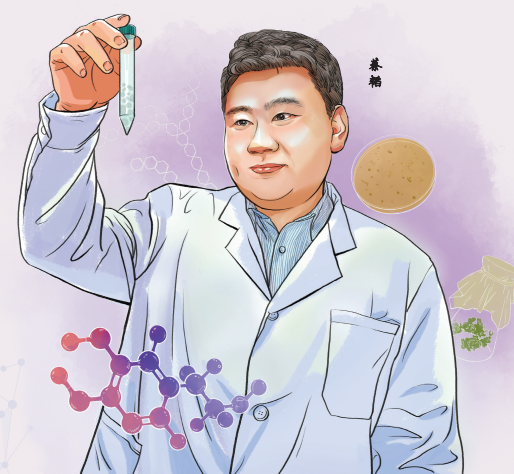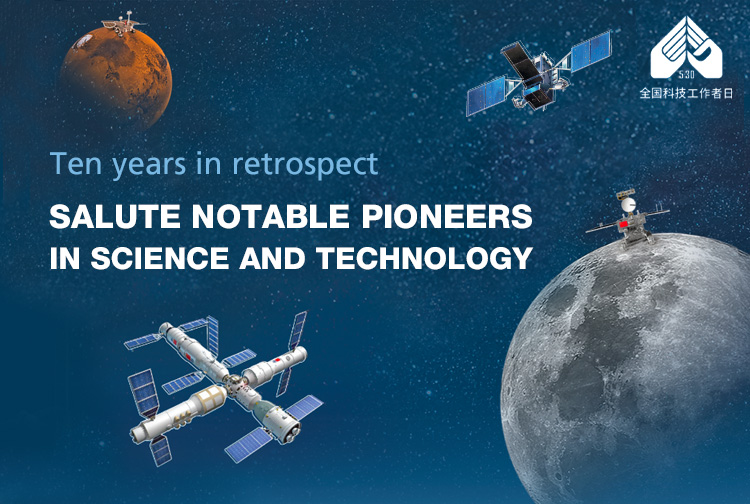Cai Tao, 40

Cai Tao, 40[Illustration by Yang Liu and Li Xiaotian]
An associate researcher at the Tianjin Institute of Industrial Biotechnology of the Chinese Academy of Sciences. In 2021, a team consisting of Cai and the institute's director Ma Yanhe became the first in the world to artificially synthesize starch from carbon dioxide in a lab experiment.
The new technique was published in the journal Science and would revolutionize agriculture if proven to be economically viable at the industrial level. The research was named one of China's top 10 scientific advances last year by the High-tech Research and Development Center of the Ministry of Science and Technology.
For Cai Tao, an associate researcher with the Tianjin Institute of Industrial Biotechnology at the Chinese Academy of Sciences, blue is not a color associated with sadness, but with hope and success. For over six years, his team focused on a single task: how to synthesize starch in a way that is similar to the process in plants, but do it much faster.
Unlocking this insight is key to sustainability on Earth and future space exploration as it theoretically allows scientists to recycle carbon dioxide and turn this common industrial byproduct and greenhouse gas into food.
With the aid of supercomputing and clever bioengineering, Cai streamlined the complex natural starch-making process via photosynthesis into 11 steps, with the final product being starch, whose solution turns blue upon contact with iodine.
“On July 24, 2018, our solution turned light blue for the first time after hundreds of failed experiments. It was a great moment of introspection and awe,” he said. “We overcame countless difficulties over the years, and for us that light blue in a tube shone like a bright ray of hope.”
Cai's findings were published in the journal Science. The Ministry of Science and Technology, the Chinese Academy of Sciences, and the China Union of Life Science Societies at the China Association for Science and Technology unanimously named it one of China's biggest original breakthroughs in basic sciences last year.
Reflecting on his achievement, Cai said maintaining curiosity, bravely forging a new path, and having the perseverance to push through the rigorous and monotonous work are the key to success for young scientists.
Aligning personal research interest with the major strategic needs of the country and the most challenging scientific questions will generate enormous passion and energy crucial for making original breakthroughs, he said.
“I hope more young scientists, including myself, can keep calm and remain focused on solving the basic scientific challenges behind our country’s needs and make our mark on China’s path toward achieving self-sufficiency in science and technology,” he added.








